Over the past two decades, Ethiopia has improved its delivery of primary health care services and begun to make great progress toward meeting the Millennium Development Goals, particularly with regard to maternal, newborn, and child health and the prevention and control of HIV and tuberculosis. Yet pharmaceutical services—a patient’s last point of care and one … Read more
Archive Ethiopia
Technical Brief: Transforming Pharmaceutical Services in Ethiopia through Auditable Pharmaceutical Transactions and Services
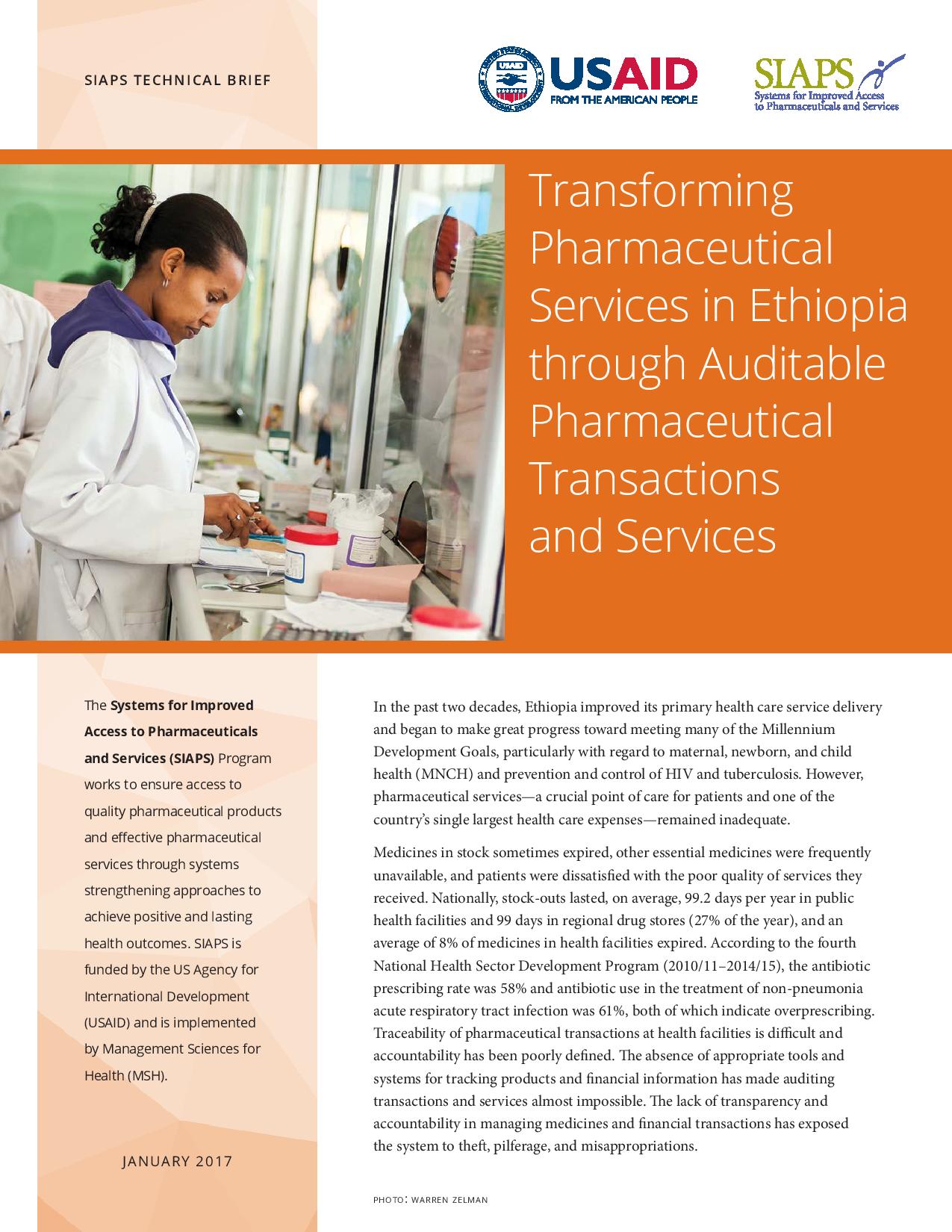
MSH has implemented pharmaceutical management projects in Ethiopia since 2005, through the Rational Pharmaceutical Management Plus Project and the Strengthening Pharmaceutical Systems (SPS) Program and most recently the Systems for Improved Access to Pharmaceuticals and Services (SIAPS) Program. The SIAPS Program (2011 to 2016) aims to reduce morbidity and mortality, primarily for HIV and AIDS, … Read more
Selected Review of Training Approaches in the SIAPS Program: Bangladesh and Ethiopia Country Reports
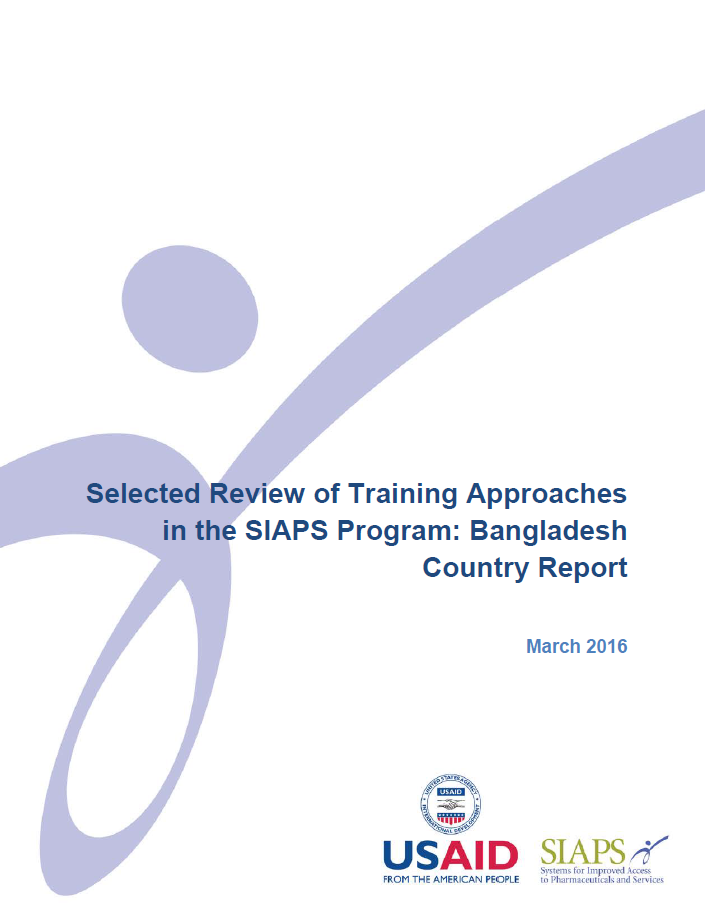
Between 2011 and 2015, the SIAPS Program has trained more than 38,000 people in 20 countries. To understand the training approaches used and the results of the training, the SIAPS Program performed a multi-country review of individual capacity-building approaches. The objective of this review is to summarize the types of training that have been used … Read more
New Approaches and Tools Help Protect Patient Safety, Increase Access to Quality Medicines in Ethiopia
The SIAPS team has helped the Ethiopian Food, Medicine, and Health Care Administration and Control Authority (FMHACA) and many health facilities in the country incorporate product quality reporting into its national adverse drug event (ADE) reporting system. This has proven to be an efficient and cost-effective measure to detect products with problems in quality and … Read more
Using Dashboards to Harness the Power of Data for Informed Decision Making
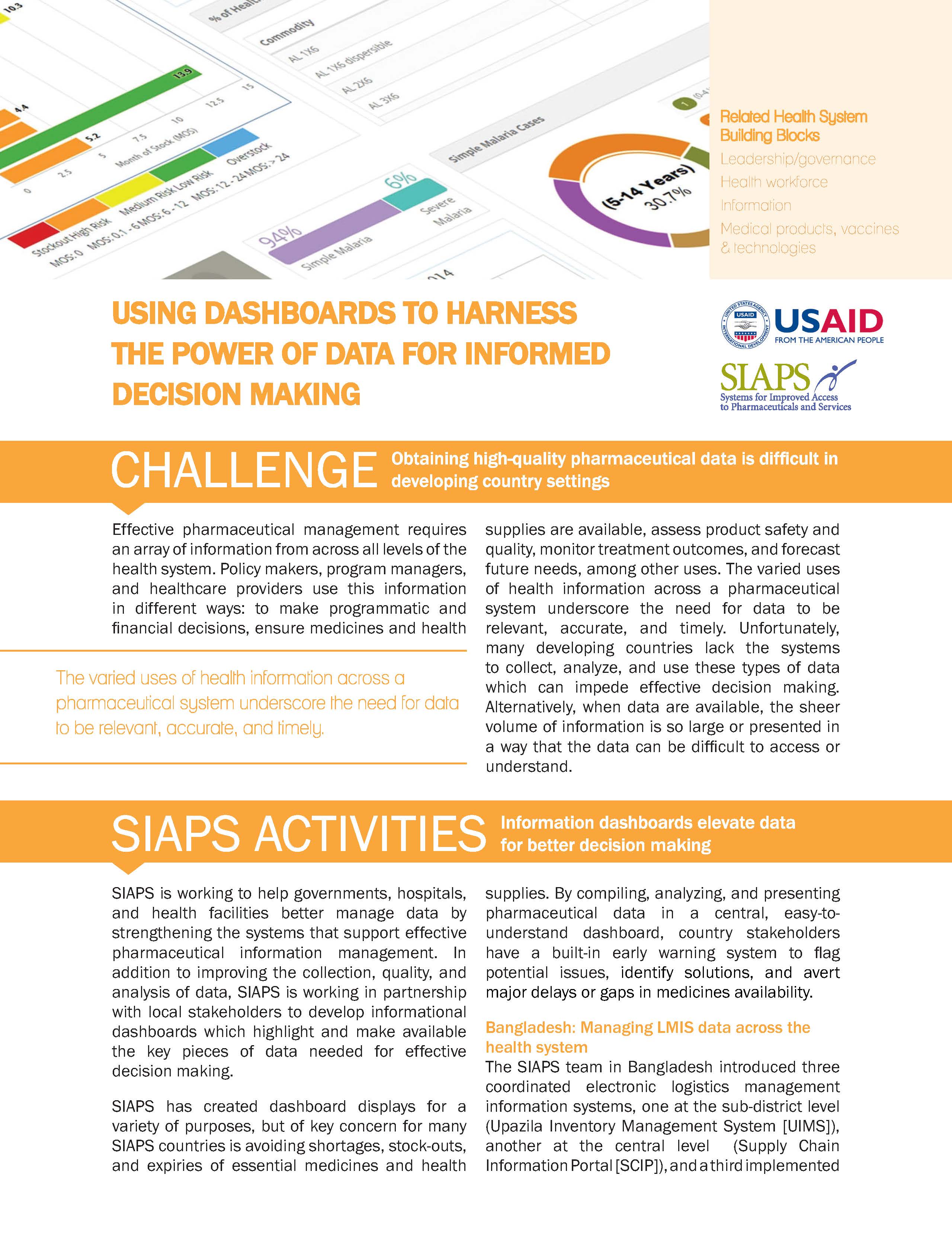
SIAPS is working to help governments, hospitals, and health facilities better manage data by strengthening the systems that support effective pharmaceutical information management. In addition to improving the collection, quality, and analysis of data, SIAPS is working in partnership with local stakeholders to develop informational dashboards which highlight and make available the key pieces of data needed for effective decision making.
Supporting Pre- and In-Service Training Programs to Expand and Strengthen the Pharmaceutical Workforce
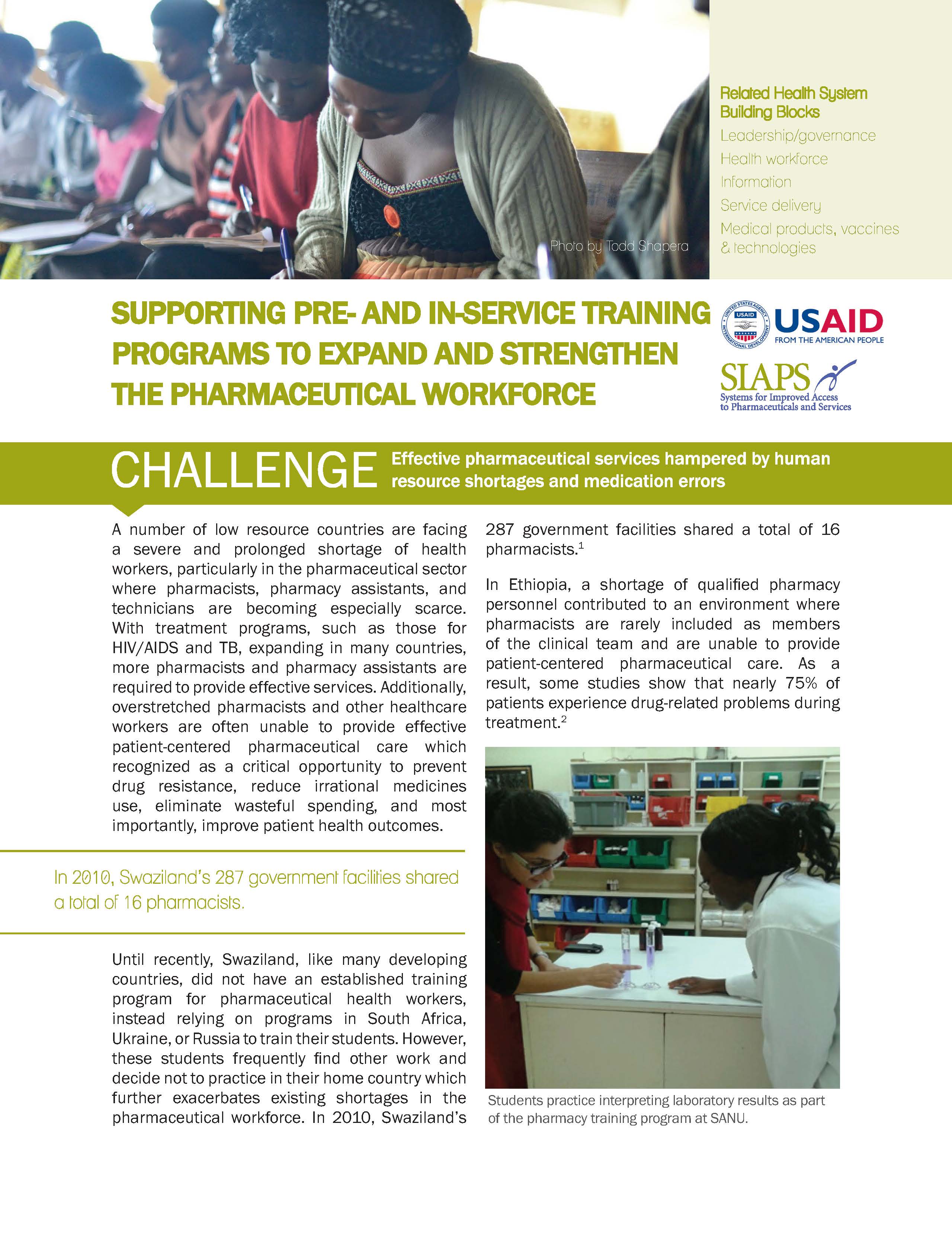
A number of low resource countries are facing a severe and prolonged shortage of health workers, particularly in the pharmaceutical sector where pharmacists, pharmacy assistants, and technicians are becoming especially scarce. With treatment programs, such as those for HIV/AIDS and TB, expanding in many countries, more pharmacists and pharmacy assistants are required to provide effective services. Additionally, overstretched pharmacists and other healthcare workers are often … Read more
Technical Brief: Improving Health Outcomes through Delivery of Patient-Centered Pharmaceutical Care by Pharmacists in Low- and Middle-Income Countries
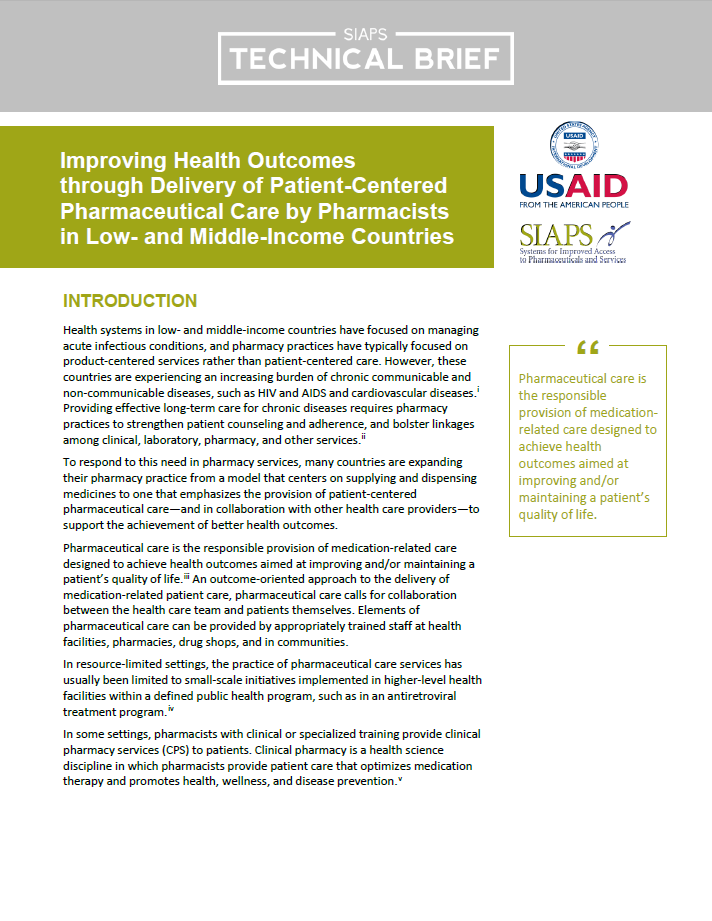
Health systems in low- and middle-income countries have focused on managing acute infectious conditions, and pharmacy practices have typically focused on product-centered services rather than patient-centered care. However, these countries are experiencing an increasing burden of chronic communicable and non-communicable diseases, such as HIV and AIDS and cardiovascular diseases. Providing effective long-term care for chronic diseases requires pharmacy practices to strengthen … Read more
Phasing Out Stavudine-Containing Regimens in the Ethiopian ART Program: The Role of Pharmaceutical Information for Decision Making
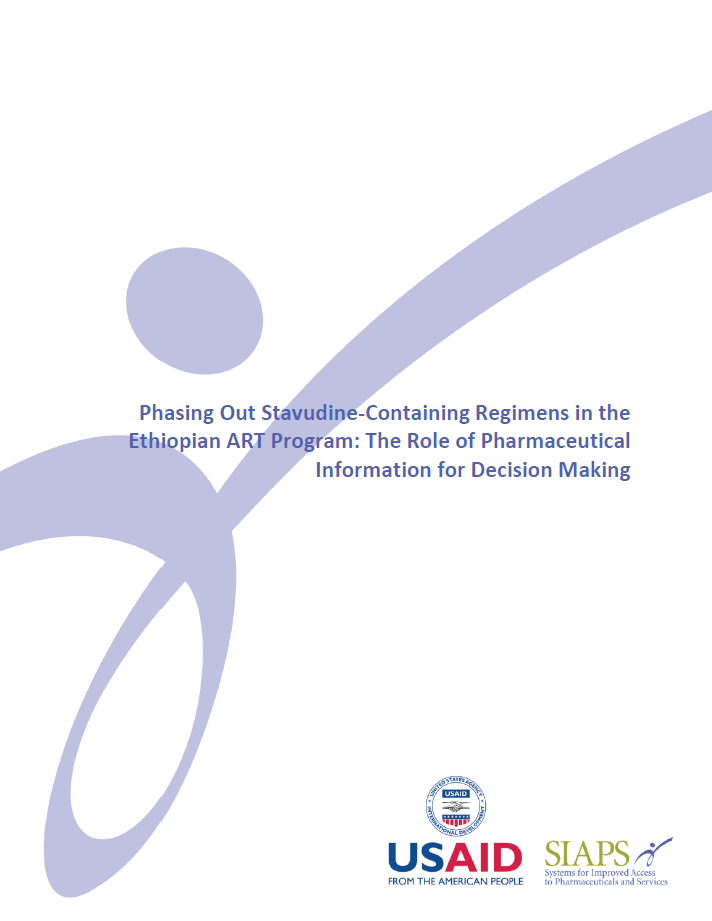
This was a descriptive retrospective study that used secondary data collected from ART service pharmacies’ routine reports. The reports contained the patient’s medication profiles on specific type of regimen. All first- and second-line regimens are captured by the reports. The study used data and reports from September 2012 to September 2014. About 205,832 patients were … Read more
Improving Infection Prevention and Control Practices at Health Facilities in Resource-Limited Settings: SIAPS Technical Report
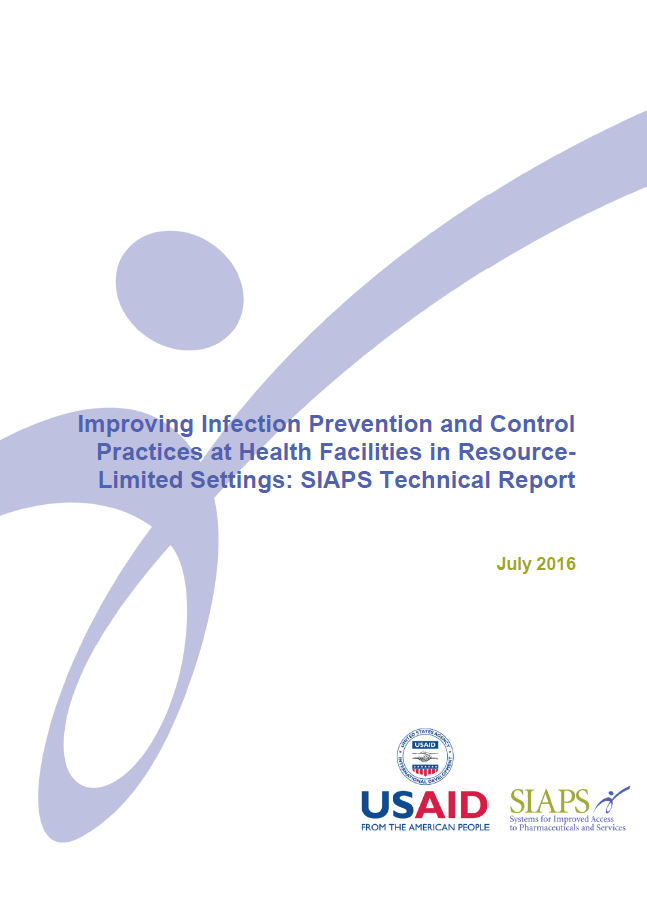
Infection prevention and control (IPC) is essential to reduce the spread of health facility-acquired (nosocomial) infections, including drug-resistant ones. The USAID-funded Systems for Improved Access to Pharmaceuticals and Services (SIAPS) Program’s goal in global technical assistance in IPC is to reduce the development and spread of nosocomial infections and antimicrobial resistance. This contributes to an … Read more
National Assessment on the Status of Implementation of Clinical Pharmacy Services at Public Hospitals in Ethiopia
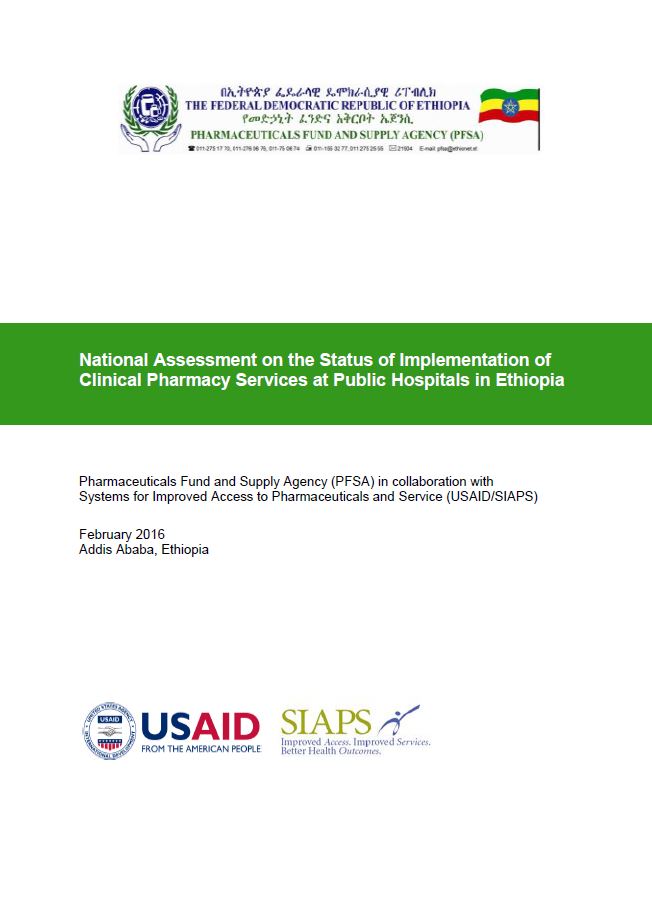
Clinical pharmacy is an area of practice in which pharmacists provide direct patient care that optimizes medication therapy and promotes health, wellness, and disease prevention. Trends in pharmacy practice elsewhere indicate that a gradual shift has taken place from product-focused to patient-oriented practice. In Ethiopia various efforts have been made to initiate clinical pharmacy services … Read more


